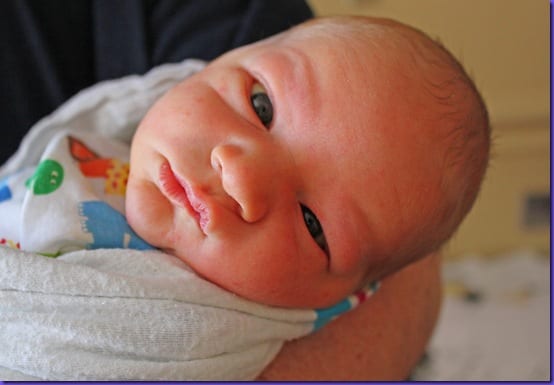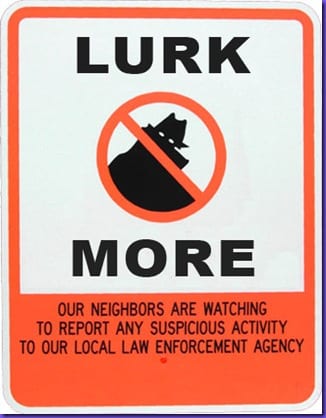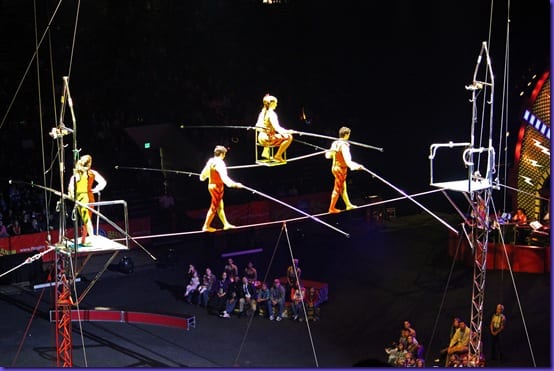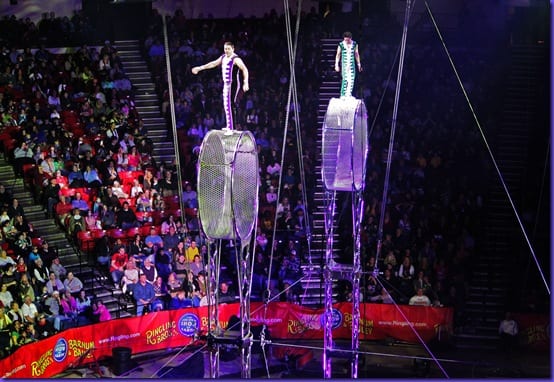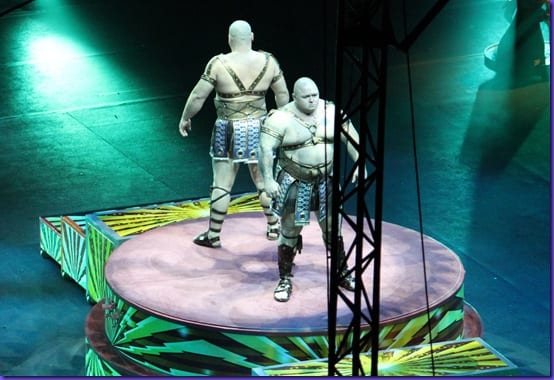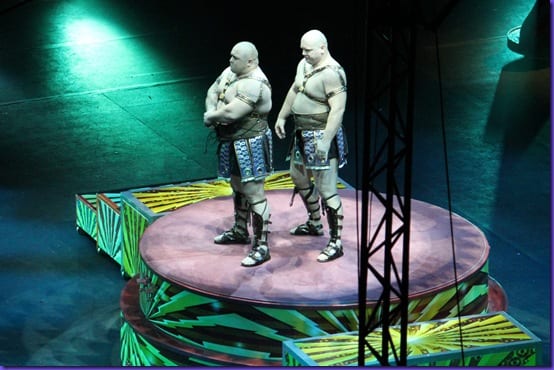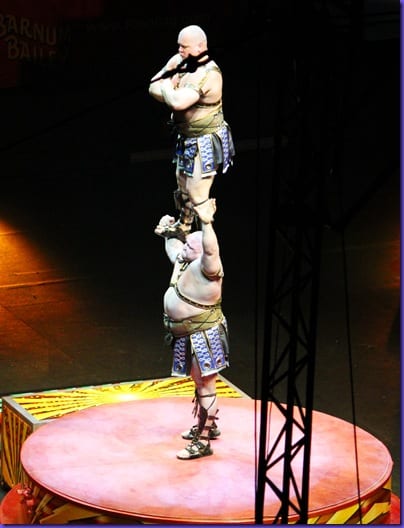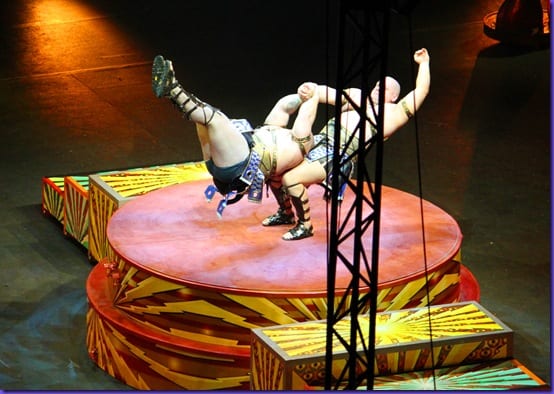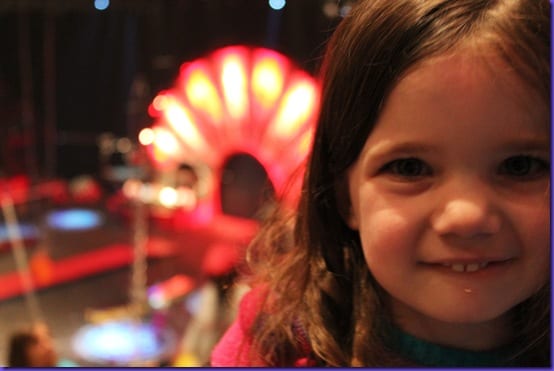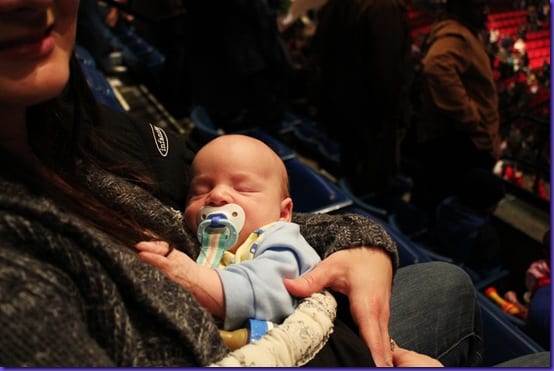Disclaimer: Before answering your questions about homeschooling, let me clarify: Any commentary herein is based only on my opinions and my family – please don’t take offense or feeling like I am making any blanket statements about your family. For instance, if I say that I chose to homeschool so that I am able to have a greater impact on my children, I am not in any way implying that people who don’t homeschool have a lesser impact on their children – I’m just giving my reasons for my choices. I do not think that homeschooling is the perfect choice for every family, and I especially don’t think I know what is best for every family. Each family needs to seek out what is best for themselves.
Answering Your Questions, Part Two: Homeschooling.
Eleanorjane – I am interested in the homeschooling thing. As an ex-High School teacher, I’m pretty vehemently opposed to homeschooling – can you explain why you do it?
I was homeschooled all twelve years, so I am very familiar with the pros and cons. But the short answer is, I feel like it prepared me very well for higher education, the workforce, and life. I learned to be self-motivated, learned great study skills, and was able to get a firm grasp on my morals and beliefs from an early age. I was also able to do my daily school work at my pace (which is very quickly), so that I was able to work quite a bit during high school, thereby giving me experience for my future career.
Oh yeah – and my Mom made me write a ton. Which might have something to do with this blog’s existence.
One of the first things people ask me is, “if you homeschooled, how did you learn social skills?”. I believe that the biggest myth about homeschooling is that it always impedes social development. I won’t deny that it certainly can hinder socialization if a family secludes themselves, but that is not the case for most homeschooled families. I had so many homeschool and church events, groups, classes, and extracurricular activities that I don’t feel that I missed out socially. And now, because of the significant rise in the number of homeschoolers, there are exponentially more of these opportunities available.
Colleges are also recognizing the value of homeschooling and recruiting based on that. Many even have scholarships just for homeschoolers.
I don’t think that homeschooling is for everyone, but it was perfect for me. And, considering Ali’s personality (she loves to learn and is a complete geek like her parents), I believe that homeschooling will be well suited to her, as well.
Cara – Do you plan to homeschool your kids through high school?
We’re not sure yet – we are certainly not opposed to it as my experience was very good, but are also not committing to it. We want to do what is best for our kids at the time.
Jessica – I’m guessing Ali is home schooled? Why did you decided to go with home schooling?
We decided to homeschool because of how well I feel it prepared me, and because Ali loves learning and we’ve really enjoyed teaching her. We also love the fact that homeschooling allows us to pour so much time into her life, giving us the opportunity to teach her our values and beliefs at a deeper level.
Plus, I have the best homeschooling resource in the world – my Mom!
Lorie – What would you say were the best and worst parts of being homeschooled?
Best:
1. How well it prepared me for a college environment,
2. The dramatically increased amount of time we had as a family, and
3. The extra time I had which allowed me to pursue work and other interests. Because I could do my work at my pace (I didn’t listen to lectures – I studied the books, did the work, and took the tests), I was able to have a job in my future field (accounting) during my last two years of school, and I was able to get ahead enough to take six weeks off of school to go on a missions trip to Cyprus during my Junior Year.
Worst:
1. The lack of competition probably kept me from doing as well as I could have in High School. I had no idea how ridiculously competitive I was until I got to college, at which point I was obsessed with making the best grades possible.
2. For those interested in playing college sports, depending on your state’s laws, you could be disadvantaged by homeschooling. However, states like Florida allow homeschooled kids to play on public school teams, which is how Tim Tebow, a homeschooler, was able to become a famous quarterback for the University of Florida.
3. The feeling of “not being like everyone else”. I don’t consider this a “bad part of homeschooling” anymore, but at the time I did. Now I realize that being different and learning to be okay with that helped shape my personality. Also, now that homeschooling is more prevalent, this isn’t nearly as much of an issue as it was when I homeschooled.
4. College calculus was very challenging for me, and I feel it could have been easier if I had taken a class in High School, rather than trying to figure it out on my own (many “traditional” classes with other homeschoolers are available through their school groups and other resources). Fortunately, though, I married an Engineer while I was still in college, so Chris tutored me in Calculus throughout our first year of marriage!
Sarah – I just took my wee boy in for his first school visit today (here in New Zealand kids start at 5 but their parents go along for the first couple of visits). Home schooling is very unusual here so I find stories from people who home school fascinating. It seems to be quite common in the US?
It is becoming more common all the time. When my Mom started homeschooling us in the mid 80’s, it was very rare and practically unheard of. But the popularity has soared, as have the opportunities for homeschoolers. In fact, at our church, over half the kids are homeschooled. When I was in school (at the same church), I was one of five homeschoolers in the entire youth group of sixty kids.
Mary @ Parenthood – What age did you start? What age did you start with Ali? When are you planning to start with Noah? Why would you (or wouldn’t you) encourage someone else to homeschool? What do you think is the biggest disadvantage of homeschooling?
First, what age I started: When I was in the first grade. But because my birthday is in October, my Mom started me in first grade when I was five, so I ended up graduating when I was 17.
Ali: It depends on what you consider “school”. I started teaching her to recognize and say letters when she was a little over a year old, but our first “definitely school” project was when she learned all of her states at two and a half years old, followed by Presidents and writing letters at almost three, and Countries,addition and subtraction at three years old.
However, please don’t take from this that I’m being over-aggressive with her education. We only do things that Ali thinks are “fun” (she literally still thinks school is a game), and only do them until she doesn’t think they’re fun anymore. Which means that sometimes we do school three days a week (never for more than an hour a day), and other times we go weeks without doing any school at all. At this age, I just want to instill in her that learning is interesting and exciting – there’s plenty of time to learn to be disciplined.
Many of our school projects (interspersed with my thoughts on the matter) can be found by browsing through the “Homeschooling: Not Just for the Socially Awkward Anymore” category.
Noah: It will depend on his temperament. If he’s like his sister and enjoys learning, we’ll start early. But if he’s all boy and too busy running around and destroying my house to sit and learn his letters, then we’ll either start later, or I’ll try to find a creative way mix learning letters with running around and destroying the house.
Would I encourage someone else to homeschool? I am very careful to never push my schooling opinions on others – every family is different and has different needs. I would only encourage someone else to homeschool if it’s something that they’re already feeling led to do. It’s not for everyone, and you’ve really got to WANT to do it to make it work. Also, the child’s temperament plays a huge role on the ease and success of homeschooling. I would definitely encourage anyone who IS interested in it to research it further, ask questions, and consider trying it, though.
Biggest Disadvantage: Already covered above in the “worst” parts of homeschooling.
karen – how did you teach Ali to write her letters?
Ali wasn’t nearly as interested in learning how to write her letters as she was in learning what they were. It took me awhile, but I found two things that helped:
First, she was much more interested in “forming” letters than in writing them, so we would practice making our letters with a piece of string, silly putty or play-doh.
Secondly, the thing that most helped her want to write them was completely by accident – she got a Cinderella and Ariel Game for her Leapster
for her Leapster
 that had a game on it where you traced a letter, and then Cinderella came behind you and danced on your letter. THAT totally sold her – I mean, if a princess will dance on your letters, who wouldn’t want to write them??
that had a game on it where you traced a letter, and then Cinderella came behind you and danced on your letter. THAT totally sold her – I mean, if a princess will dance on your letters, who wouldn’t want to write them??
Other homeschoolers: please feel free to chime in your answers to these questions, as well.
Everyone: please feel free to ask further questions, give your own insights, or discuss in the comments. I’ll answer any follow-up questions within the comment section.




